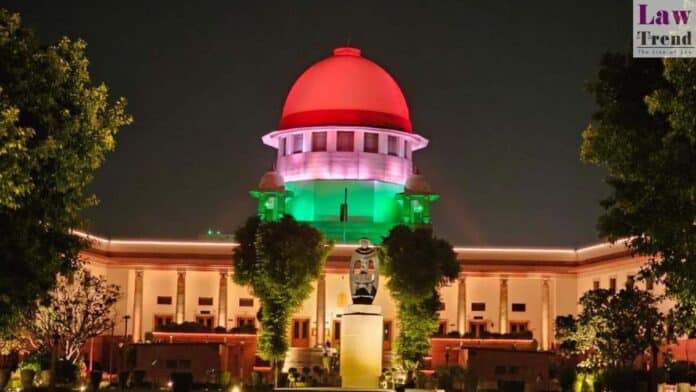The Supreme Court on Monday asked former managing director and chief executive officer of the National Stock Exchange Chitra Ramkrishna to deposit Rs 12.5 lakh out of the Rs 25 lakh penalty imposed by the Securities Appellate Tribunal in the dark fibre case, as it agreed to hear her plea.
A bench of Justices Sanjiv Khanna and Dipankar Datta issued notice on her plea challenging the December 14, 2023, order of the SAT by which it had reduced the penalty of Rs 2 crore imposed by SEBI for violation of the Securities Contracts (Regulation) Act, 1956 (SCRA) to Rs 25 lakh saying the fine imposed by the market regulator was arbitrary and excessive.
Justice Khanna told senior advocate Siddharth Bhatnagar, appearing for Ramkrishna, “You were made liable because you were the head of the institution. You deposit 50 per cent of the amount, then we will see.”
Bhatnagar contended that she was head of the institution and could not be vicariously held liable for the wrong done by the NSE.
The bench ordered that no coercive action be taken against Ramkrishna subject to her depositing 50 per cent of the penalty and sought a response from SEBI on her plea for a stay of operation of SAT order on the fine amount.
On December 14, the SAT had quashed the SEBI’s order imposing a fine of Rs 7 crore on the NSE in the case.
The case relates to the alleged differential access given to certain broking firms in the form of ‘dark fibre’ at NSE, to connect across the co-location facilities before other members.
A dark fibre or unlit fibre, with respect to network connectivity, refers to an already laid but unused or passive optical fibre, which is not connected to active electronics/equipment and does not have other data flowing through it and is available for use in fibre-optic communication.
The tribunal had set aside a fine of Rs 5 crore levied by SEBI on the exchange’s former official Anand Subramanian. Further, it had partly set aside the regulator’s order against Ramkrishna, ex-official Ravi Varanasi and a few stock brokers, among others.
The SAT order had come after the 16 appeals were filed against SEBI’s order passed in June 2022 against 18 entities, including the NSE, its former officials and stock brokers. The order was challenged by the appellants on different grounds.
The Securities and Exchange Board of India (SEBI) in its order had imposed penalties of different amounts against each of the appellants for violation of the PFUTP (Prohibition of Fraudulent and Unfair Trade Practices) Regulations as well as SEBI’s circulars. Further, fines were slapped for flouting the SCRA.
SEBI, in its 2022 order had imposed a penalty of Rs 7 crore on NSE, Rs 5 crore each on Ramkrishna, Varanasi and Subramanian. Also, fines were levied against Way2Wealth Brokers, GKN Securities and Sampark Infotainment.
The regulator had initiated an investigation into the dealings of several entities, for the period 2009 to 2016 to investigate the matter of providing connectivity to certain stock brokers by NSE in a manner which may be detrimental to the investors or the securities market.
Also Read
Setting aside SEBI’s order, the tribunal had noted that the order of the AO (Adjudicating Officer) contained nine charges against the NSE, out of which seven charges were the same as given by the WTM (Whole Time Member). It had further said that seven charges against the exchange were set aside by this tribunal in its order of August 9, 2023.
Further, SAT had quashed the other two charges issued against NSE — delay in processing the request of the members and inconsistent and contradictory reply given by the bourse to SEBI.
Concerning Ramkrishna, SAT had said that a penalty of Rs 3 crore for violation of the PFUTP rules cannot be sustained and quashed. The penalty of Rs 2 crore for the violation of the SCRA has been reduced to Rs 25 lakh saying SEBI’s fine was arbitrary and excessive.
On Ravi Varanasi, the tribunal had slashed the penalty amount saying that substantial justice would be done if a minimum penalty of Rs 5 lakh is imposed on him.
Also, the appellate tribunal had quashed SEBI’s direction barring Ramkrishna from holding any managerial positions in a market intermediary for three years and three other former officials — Ravi Varanasi, Nagendra Kumar and Devi Prasad Singh — for two years.




